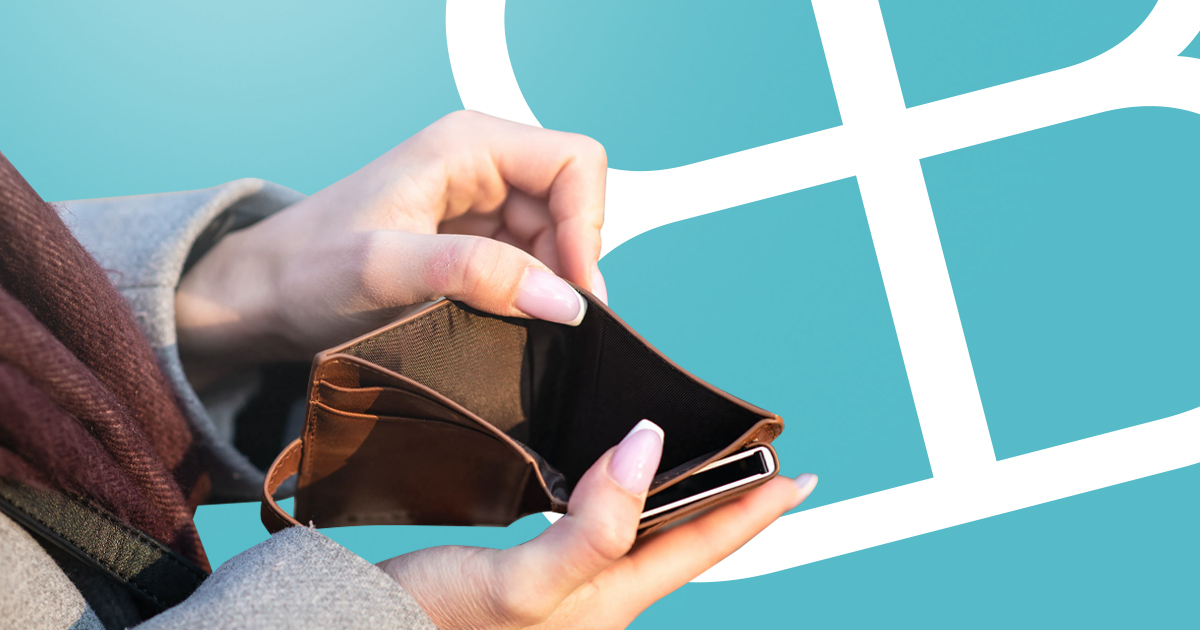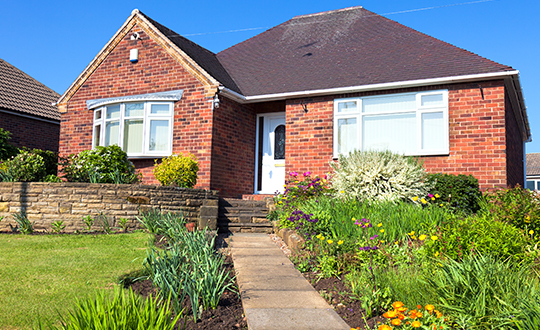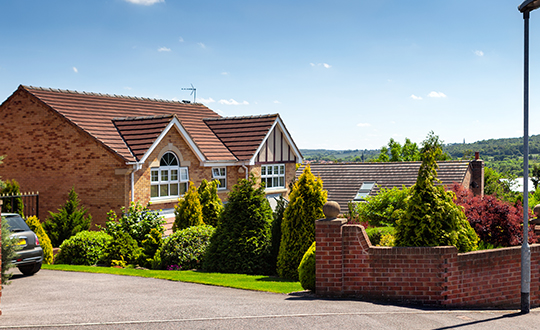How To Get A Mortgage After Being Bankrupt

Having poor credit history and especially being registered as bankrupt can make it difficult to get approved for a mortgage. However, there are still some options available and the longer ago that the bankruptcy occurred, the more chance you have of being approved for a mortgage.
- What does bankruptcy mean?
- Can I get a mortgage after bankruptcy?
- How long after bankruptcy can I get a mortgage?
- How will bankruptcy affect my interest rate?
- How to get a bankruptcy mortgage?
- If I get accepted for a mortgage, can it still be declined?
- How long will I have to pay high interest on a mortgage for?
- Should I wait longer before applying for a mortgage after bankruptcy?
What does bankruptcy mean?
The term bankruptcy refers to the legal process that allows someone with significant debts to clear their debts when they cannot pay their debt back. Some people apply for bankruptcy for themselves but in some cases a creditor will ask a court to make a debtor bankrupt.
Bankruptcy affects your credit rating for six years and if you want to take out a loan of over £500, you are legally required to tell the lender that you are bankrupt.
Can I get a mortgage after bankruptcy?
Yes, it is still possible to get a mortgage after bankruptcy, but you may have to pay a higher interest rate. Many lenders will automatically decline somebody with a recent bankruptcy, but some specialist lenders will be prepared to provide a mortgage loan.
You might be able to get a conventional mortgage, buy-to-let, second charge or remortgage even after a bankruptcy, under certain circumstances.
Free phone and video consultations are provided in the U.K.
Get StartedHow long after bankruptcy can I get a mortgage?
You cannot apply for a mortgage until you have been discharged.
This will usually be for a period of 12 months, but the length will depend on the court’s decision. Even when you have been discharged, it will take years of making payments on time to improve your credit score.
After being bankrupt, the length of time that it will take to be eligible for a mortgage will depend on the lender. Some lenders will approve a mortgage immediately after your bankruptcy is discharged but will request a larger deposit than a standard mortgage and will also have a higher interest rate. You may also have to pay larger mortgage arrangement fees for a mortgage straight after you have been discharged.
Most lenders will decline a mortgage application from someone who has only just been discharged after bankruptcy, so you would need to find a mortgage lender who specialises in lending to people who have been declared bankrupt.
The majority of lenders will want to see several years of building up good credit behaviour by making sure you pay all bills on time and would therefore be deemed trustworthy to lend to.
How will bankruptcy affect my interest rate?
It is very likely that you will be charged a higher interest rate than if you did not have bankruptcy on your credit record. Generally, the longer it has been since you were discharged, the better an interest rate you will be able to get.
If you are applying for a mortgage 1-2 years after you have been discharged, then you are more likely to be required to pay a large deposit and have a higher interest rate of up to around 4-8%.
If you are applying 5-6 years after being discharged and have had no more adverse credit during this time, you should be able to get a mortgage approved with a 10% deposit. Other factors will also be considered when the lender is deciding how much deposit they require from you.
See What Our Clients Have To Say
How to get a bankruptcy mortgage?
When you have been registered as bankrupt, you will be treated similarly to if you had other types of poor credit.
For bankruptcy specifically, there are a few actions you can take to improve your chances of getting a mortgage, including:
Use a specialist mortgage lender
Using a standard mortgage lender will usually not be an option and you also risk having your mortgage application declined, which could further affect your credit report.
By choosing a specialist bankruptcy mortgage lender, you know that they provide mortgages to people who have been declared bankrupt.
Boon Brokers can find a specialist mortgage lender who is prepared to approve mortgages after being discharged.
Check your credit reports
You should check your credit reports to see if there are any irregularities. For example, the date of discharge could be incorrect, which could prevent you from having your mortgage approved.
If there are any irregularities on your credit report, you should get them corrected before you apply for a mortgage.
Have a large deposit
Having a large deposit is beneficial for any mortgage but particularly for bad credit and bankruptcy mortgages, as the lender will be looking to reduce the risk by requiring a large deposit.
Many lenders will request between 20-40% as a deposit, with very few lenders being prepared to lend over 70% of the property value to someone who has been registered bankrupt.
As well as being more likely to get your mortgage application accepted if you have a bigger deposit, you will also have a better chance of getting a deal with a lower interest rate.
Check eligibility
Before applying for a mortgage, you should check whether you meet the eligibility criteria. For example, some lenders require you to have been discharged from bankruptcy for at least three years and you must also have clean credit during that time.
Use a mortgage broker
A mortgage broker, such as Boon Brokers, will be able to review your circumstances to see which lender will be likely to provide a mortgage to you.
They will take into account how long it has been since you were discharged, how much deposit you have and all other relevant factors to find the most suitable mortgage deal.
It is easier to get any type of specialist mortgage where there are a limited number of available lenders when you use a broker to find the specialist lenders.
While some brokers will charge a fee for using their services, Boon Brokers does not charge client fees.
Rebuild your credit score
If you are not eligible for a mortgage yet, you should work on rebuilding your credit score by making sure your bills are always paid on time. You should also register for the electoral roll if you have not already.
Other ways to improve your credit score include keeping credit to a minimum and to limit the number of credit applications that you make.
You should avoid taking out payday loans, as this will make getting a mortgage more difficult.
Any type of adverse credit on your file after a bankruptcy will affect your chances of getting a mortgage approved, so it may be a better option to spend time rebuilding your credit score before applying for a mortgage.
You should also close any dormant credit accounts that you have because lenders will assess how much credit you have available, even if you have not been using the credit.
If I get accepted for a mortgage, can it still be declined?
Generally, if a bankruptcy was discharged more than six years ago, this should not show up on your credit file. However, there is a database called the National Hunter that holds details of people who have experienced bankruptcy.
When you apply for a mortgage, you might pass all of the initial checks but then when you submit your full application, the lender could check the Hunters Report and then decide to decline your mortgage application.
This is why it is a good idea to choose a mortgage broker who will review your specific circumstances to identify a lender that will accept your application, if there is one available.
How long will I have to pay high interest on a mortgage for?
After six years of being discharged, your credit report will no longer show bankruptcy and if you have had a healthy credit report since then, you should be accepted for standard mortgages with lower interest rates.
If you are in a position where you need to get a mortgage and only have the option of deals that have high interest rates, you should try to make sure that you are not fixed to the rate for a long time.
It is better to take out a short fixed term, for example, for two years and then look for a better deal after those two years.
You should also check that there is no early repayment charge that would prevent you from switching to a better deal in a few years’ time.
There are other factors that will determine whether you can get a better deal in the future, such as your income and what other outgoings you have to pay.
You should try to reduce any other outstanding debt as much as possible before you look to switch mortgages, to have a better chance of getting a lower interest rate.
Should I wait longer before applying for a mortgage after bankruptcy?
This depends on your specific situation, as you might be able to get a mortgage without paying a very high interest rate.
Even if you are paying a high interest rate on a bankruptcy mortgage, you might be in a better financial position by buying a house instead of renting, for example.
If you want to find out more about getting a mortgage after bankruptcy, contact our whole-of-market mortgage advice team and we can discuss your options. Boon Brokers is a fee-free whole-of-market mortgage and insurance brokerage.
Gerard BoonB.A. (Hons), CeMAP, CeRER
Gerard is a co-founder and partner of Boon Brokers. Having studied many areas of financial services at the University of Leeds, and following completion of his CeMAP and CeRER qualifications, Gerard has acquired a vast knowledge of the mortgage, insurance and equity release industry.Related Articles
- Should I Use My Estate Agents Mortgage Broker?
- Reasons Why Mortgage Applications Are Declined
- What Is A 5X Mortgage?
- How To Avoid Early Repayment Charges
- How Does Being Self Employed Affect A Joint Mortgage?
- How To Get A Mortgage With Bad Credit
- What Is An Offset Mortgage?
- The House Buying Process
- Military Mortgages Guide
- Choosing A Mortgage Broker
- How To Get A Mortgage With A New Job
- What Is A Guarantor Mortgage











